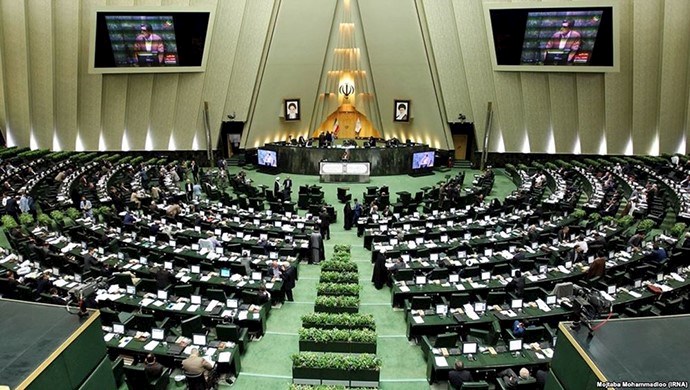Analysisby PMOI/MEK
Iran, August 17, 2020—A so-called “economic breakthrough” plan has triggered a new wave of internal conflicts and disputes among Iranian regime officials. The government plans to presell 220 million barrels of oil to the people and the private sector at $42 per barrel and return the money two years later with 19 percent interest.
This plan is meant to deal with the decline in the government’s foreign exchange reserves and huge budget deficits. But the government’s promises to the buyers has no basis and there are no prospects that the regime will be able to export oil and pay back the people’s debts in two years.
Economic breakthrough plan rejected by regime branches
While expressing the economic advantages and blessings of this plan, Iranian regime president Hassan Rouhani said in his remarks at the cabinet’s economic coordination board: “The government’s economic task force made this proposal at the Supreme Economic Coordination Council meeting. The plan was welcomed and the necessary decisions were made to finalize it.”
But the Sunday session of the Majlis (Parliament) revealed that Rouhani’s remarks about the plan being welcomed by heads of legislative and judicial branches were nothing but a lie. It was also revealed that the Majlis speaker, Mohammad Bagher Ghalibaf, and the Judiciary chief Ebrahim Raisi have opposed Rouhani’s plan and protested on why did he make the plan public and brought it to the media before presenting it at the council. Afterward, it was decided that the plan would first be considered in parliament and, if approved, implemented.
Abolfazl Abutorabi, MP from Isfahan, said: “In a letter to the Supreme Leader Ali Khamenei, the heads of legislative and judicial branches have opposed government decision of selling oil bonds in the stock market and have emphasized that this act is in contradiction to what was discussed at the meeting of the branches. The people were supposed to be free to sell the bonds at any time, but the government wants to take their money and postpone its payback for two years later, which means that the next government must assume responsibility for the issue.”
Rouhani’s second term ends in 2021. In essence, this means that the regime’s president wants to empty the pockets of the people to address his pressing needs, knowing that he will be long gone from office when the issue of repaying the debts is brought up.
A heavy drop in Iran’s stock exchange market
Following the plan announcement and the exposure of the nature of similar developments in Iran’s stock market, the market has seen a steep decline since late last week. The index of Tehran Stock exchange suffered a heavy drop on Sunday, marking the largest decrease in quantity, and the third percentage decrease (4.71 percent negative) in the history of the capital market.
“The stock exchange in Iran has reached a red line,” wrote the state-run Ebtekar daily on August 17. “After months of climbing, not only has it pulled the brakes, but it is also on a backward course now.”
Ebtekar warned about the consequences of the government tampering the stock market and wrote: “The government has seen the result of wrong behavior regarding the gasoline price hike in November 2019. The springs are now compressed; any behavior that leads to trigger a ‘stock exchange bomb’ is a mass suicide for the economy, the society and consequently for the security.”
Naser Moussavi Largani, member of Majles’ Presidium, wrote in a tweet: “What is happening in the stock market is not normal… we can not add small shareholders, who are mostly ordinary people, to the market and destroy 30 percent of their capital.”
Economic deadlock or social outrage
During the Sunday Majlis session, MP Kazem Delkhosh said: “With the current process we are going through, the Majlis is being deprived of power.” Delkhosh also warned about the gasoline price hike scenario and tried to distance himself from the consequences by adding: “I loudly announce to the people of Iran, the parliament has no precise information about this decision so far. We must be careful not to enter the stock market and get caught up in problems, and then decide what to do.”
On the other side, during the cabinet meeting of August 22, Rouhani said to those opposing the plan: “Anyone who objects the government’s plan, please tell us what is your solution? We will not get anywhere by cursing at each other.”
There is, of course, a solution, which regime officials intentionally avoid to mention. The regime’s leaders can tap into their vast financial resources to lift some of the economic pressure from the people. Khamnei reportedly oversees an economic empire that is valued at more than $200 billion. Those funds are in service of keeping the regime in power through foreign terrorism, development of nuclear weapons and ballistic missiles, and domestic suppression.
As a result, the regime is facing a catch-22 situation. It must either forgo its terrorist and fundamentalist ambitions to restore the economy, or it must squeeze the last of the economic power the population has. In both cases, the consequences will be deep and destructive for the regime, causing an implosion of power or an explosion of public outrage.





